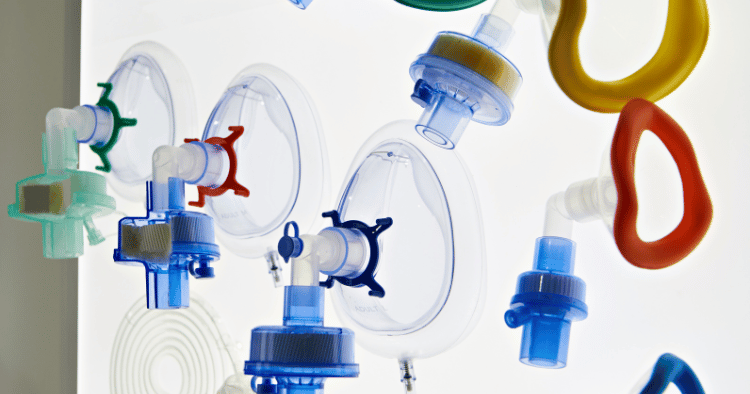In healthcare settings, maintaining a sterile environment is paramount for protecting both patients and staff from infections and diseases. Bacterial filters play a crucial role in achieving this goal by removing harmful microorganisms from the air and water. This article explores the importance of bacterial filters in healthcare, their applications, and how they contribute to a safer healthcare environment.
The Role of Bacterial Filters in Healthcare
1. Ensuring Clean Air
Bacterial filters are essential in various air purification systems within healthcare facilities. They help maintain clean air, which is crucial in areas like operating rooms, intensive care units (ICUs), and patient wards.
- Operating Rooms: Filters prevent airborne bacteria from contaminating surgical sites.
- ICUs and Patient Wards: Protects vulnerable patients from airborne infections.
2. Purifying Water
In healthcare, the purity of water is just as important as the cleanliness of the air. Bacterial filters ensure that water used in medical procedures and patient care is free from harmful microorganisms.
- Dialysis Machines: Removes bacteria to protect patients undergoing dialysis.
- Sterile Processing Departments: Ensures instruments are washed with bacteria-free water.
Applications of Bacterial Filters in Healthcare
3. Medical Devices
Many medical devices rely on bacterial filters to protect patients from infections.
- Ventilators and Respirators: Filters bacteria from the air before it reaches the patient’s lungs.
- Anesthesia Machines: Ensures the gas administered to patients is free from contaminants.
4. Central Sterile Services
In sterilization departments, bacterial filters play a crucial role in ensuring that medical instruments are free from bacteria before being used on patients.
- Water Filtration: Ensures that water used in cleaning instruments is free from bacteria.
- Air Filtration: Maintains sterile air in cleanrooms where instruments are processed.
Benefits of Using Bacterial Filters
5. Protecting Patients
The primary benefit of bacterial filters is protecting patients from infections. By ensuring that the air they breathe and the water used in their care is clean, healthcare facilities can significantly reduce the risk of hospital-acquired infections (HAIs).
- Reduced Infection Rates: Effective filtration lowers the incidence of infections in patients.
- Improved Recovery Outcomes: Patients recover faster when they are not exposed to harmful bacteria.
6. Safeguarding Staff
Healthcare workers are also protected by bacterial filters, which reduce their exposure to airborne and waterborne pathogens.
- Healthier Work Environment: Cleaner air and water mean fewer sick days and healthier staff.
- Reduced Transmission: Lower risk of staff transmitting infections between patients.
Best Practices for Using Bacterial Filters
7. Regular Maintenance
To ensure bacterial filters remain effective, regular maintenance and replacement are essential.
- Scheduled Replacements: Follow manufacturer guidelines for replacing filters.
- Routine Inspections: Regularly inspect filters for signs of wear or damage.
8. Training and Protocols
Proper training for healthcare staff on the use and maintenance of bacterial filters is crucial.
- Staff Training: Ensure all relevant staff are trained on how to use and maintain bacterial filters.
- Standard Operating Procedures: Implement protocols for regular checks and maintenance of filtration systems.
Choosing the Right Bacterial Filter
9. Key Considerations
When selecting bacterial filters for healthcare settings, consider factors like filtration efficiency, compatibility with existing systems, and ease of maintenance.
- Filtration Efficiency: Choose filters that can effectively remove bacteria and other pathogens.
- Compatibility: Ensure the filter fits well with existing HVAC or water systems.
- Ease of Maintenance: Opt for filters that are easy to replace and maintain.
10. Reliable Suppliers
Partnering with a trusted supplier like GVS ensures access to high-quality bacterial filters designed specifically for healthcare applications.
- Quality Assurance: GVS filters meet international standards for healthcare use.
- Technical Support: Provides ongoing support and guidance for optimal use and maintenance.
Conclusion
Bacterial filters are indispensable in healthcare settings, playing a critical role in protecting patients and staff from infections. By ensuring clean air and water, these filters contribute significantly to the overall safety and effectiveness of healthcare environments. Partnering with reliable suppliers like GVS ensures you have access to top-quality bacterial filters, helping you maintain a sterile and safe environment for everyone. Investing in the right bacterial filters and maintaining them properly is key to safeguarding health and improving outcomes in healthcare facilities.



